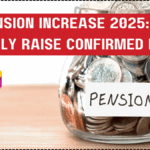The Philippines is experiencing a notable shift in its education landscape. The PH lifelong learning demand rises 2025, signaling a deeper cultural and economic transformation. Workers across industries are returning to learning—not out of necessity, but out of strategy. This shift is largely propelled by the evolution of technology and the aggressive pace of automation, forcing both young professionals and seasoned workers to adapt continuously.
The government’s updated national development plan now includes lifelong learning as a critical pillar for economic resilience. Programs supported by TESDA, CHED, and private sector partnerships are seeing increased enrollment, with flexible, modular, and online formats making learning more accessible to adult learners.

Technology and Certifications: The New Currency of Skills
The demand for tech skills growth has become impossible to ignore. Fields such as AI operations, cybersecurity, data analytics, and blockchain management are no longer niche—they’re foundational. Consequently, certifications and micro-credentials are gaining more weight in hiring decisions than traditional degrees.
Companies in Metro Manila and key provincial cities are prioritizing applicants with current, demonstrable skills, often backed by digital badges or online course credentials. Organizations like Google Philippines and Microsoft Asia Pacific have launched upskilling grants and platform-based training to support this boom.
The Adult Education Boom: Who’s Going Back to School?
Adult education in the Philippines is no longer limited to basic literacy or vocational skills. It now encompasses leadership training, advanced coding bootcamps, and industry-specific learning modules. The average learner age has shifted from early 20s to mid-30s and beyond.
One striking trend: professionals from traditional sectors—education, public service, and even agriculture—are now engaging in tech reskilling. Farmers in Isabela, for instance, are learning precision agriculture through online courses, while teachers in Davao are mastering hybrid teaching models via e-learning platforms.
Breakdown of Learning Trends in the Philippines – July 2025
| Category | Key Trends 2025 | Example Initiatives |
|---|---|---|
| Tech Skills Growth | AI, cloud computing, cybersecurity | Google Career Certificates, TESDA Tech Bootcamps |
| Adult Education Participation | Higher engagement from 35+ age group | DOST-Sponsored Online Learning Hubs |
| Credentialing | Digital badges, stackable certificates | Microsoft Learn, Coursera PH |
| Learning Format | Hybrid, self-paced, microlearning | Edukasyon.ph, SkillUp by DICT |
Why This Movement Matters Now
The pressure to stay competitive in a rapidly evolving job market is real. For Filipino workers, the ability to adapt through ongoing education is not just an advantage—it’s a necessity. As job descriptions evolve faster than ever, those without updated skills risk being left behind.
Moreover, the integration of AI into recruitment tools means that credentials and keyword-verified competencies now have measurable impacts on job opportunities. HR platforms in the Philippines increasingly filter applicants based on verified learning outcomes, making ongoing education a decisive factor in career growth.
Embracing a Learning-First Mindset
July 2025 marks a turning point where lifelong learning is no longer a buzzword but a national imperative. As the PH lifelong learning demand rises 2025, industries, educators, and individuals are all playing a role in redefining what education means in adulthood.
From local tech bootcamps to global certification platforms, the ecosystem is growing—and fast. For learners, this means more opportunities. For the nation, it means a smarter, more adaptive workforce ready for the challenges of a tech-driven economy.
FAQ
Why is the PH lifelong learning demand rising in 2025?
The demand is rising due to rapid technological advancement, workforce automation, and the need for continuous skill upgrades to remain relevant in the job market.
What role does tech play in adult education today?
Technology drives both the content and the format of adult learning. Online platforms, digital credentials, and virtual classrooms make learning more flexible and relevant to modern job roles.
Are credentials more important than degrees now?
While degrees still matter, employers in 2025 are increasingly valuing short-term, skill-specific credentials that demonstrate immediate job readiness.
Who is participating in lifelong learning the most?
The mid-career workforce (ages 30–50), especially those in traditional or transitioning sectors, are the most active participants in upskilling programs.
What support is available for Filipino learners?
Government programs like TESDA and private sector partnerships with platforms like Coursera and Microsoft provide subsidized or free learning opportunities across the country.
Click here to learn more
Akesh is a talented content writer known for creating captivating and impactful narratives. He understands what resonates with audiences and tailors his content to inform, inspire, and engage. From blog posts and articles to marketing copy, his work consistently combines creativity with clarity. His skillful writing strengthens our brand’s voice and ensures our message leaves a meaningful impression.



